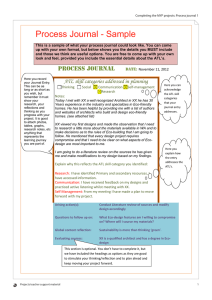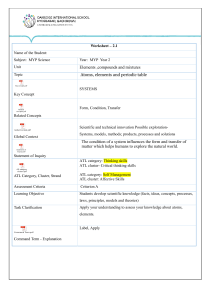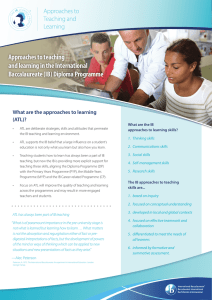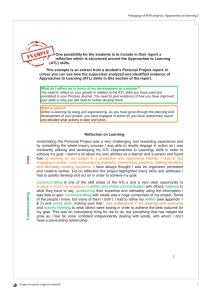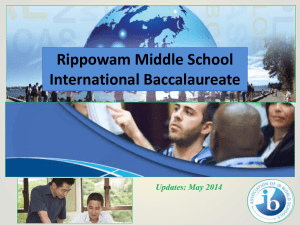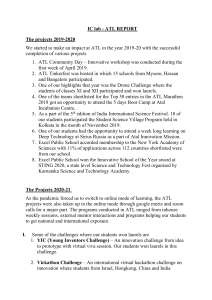IB Diploma Programme: Approaches to Teaching and Learning (ATL)
advertisement
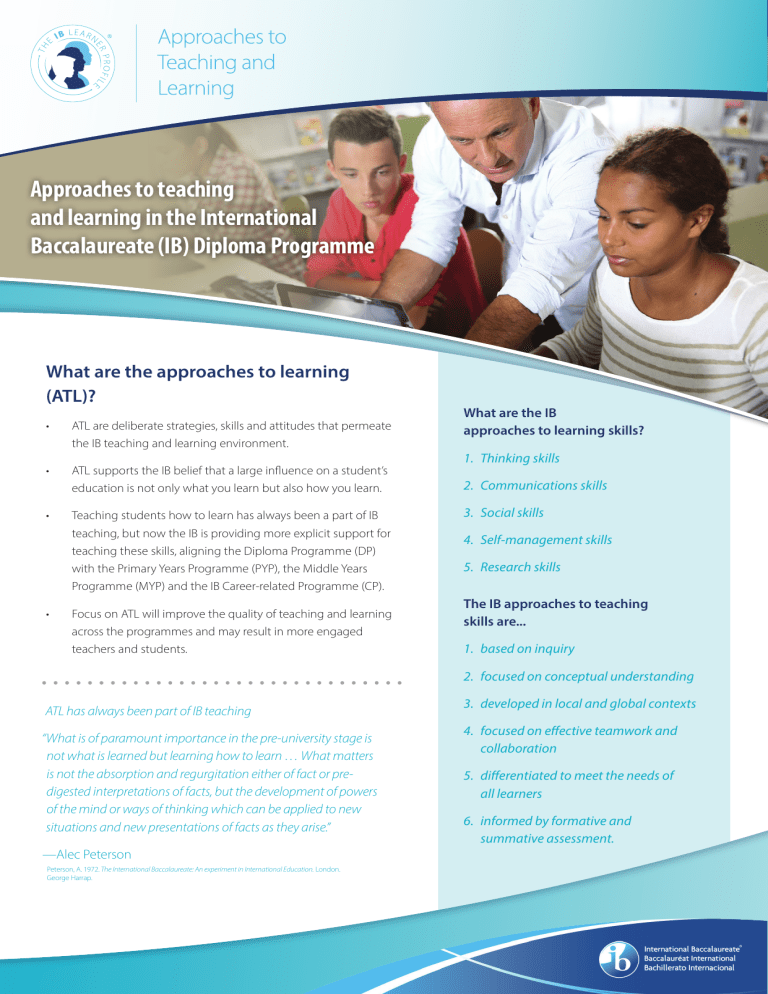
Approaches to teaching and learning in the International Baccalaureate (IB) Diploma Programme What are the approaches to learning (ATL)? • ATL are deliberate strategies, skills and attitudes that permeate the IB teaching and learning environment. • ATL supports the IB belief that a large influence on a student’s education is not only what you learn but also how you learn. • Teaching students how to learn has always been a part of IB teaching, but now the IB is providing more explicit support for teaching these skills, aligning the Diploma Programme (DP) with the Primary Years Programme (PYP), the Middle Years Programme (MYP) and the IB Career-related Programme (CP). • Focus on ATL will improve the quality of teaching and learning across the programmes and may result in more engaged teachers and students. What are the IB approaches to learning skills? 1. Thinking skills 2. Communications skills 3. Social skills 4. Self-management skills 5. Research skills The IB approaches to teaching skills are... 1. based on inquiry 2. focused on conceptual understanding ATL has always been part of IB teaching “What is of paramount importance in the pre-university stage is not what is learned but learning how to learn … What matters is not the absorption and regurgitation either of fact or predigested interpretations of facts, but the development of powers of the mind or ways of thinking which can be applied to new situations and new presentations of facts as they arise.” —Alec Peterson Peterson, A. 1972. The International Baccalaureate: An experiment in International Education. London. George Harrap. 3. developed in local and global contexts 4. focused on effective teamwork and collaboration 5. differentiated to meet the needs of all learners 6. informed by formative and summative assessment. What is changing? Implementing the ATL is an exciting opportunity for DP coordinators and teachers. A shift in focus or emphasis in their role as pedagogical leaders responsible for organizing cross-departmental and whole faculty planning of skills may be required. Development of the DP ATL also supports schools in meeting a number of IB programme standards and practices (2014), such as: • • The head of school/school principal and programme coordinator demonstrate pedagogical leadership aligned with the philosophy of the programme(s). The curriculum identifies the knowledge, concepts, skills and attitudes to be developed over time. • Teaching and learning engages students as inquirers and thinkers. • Teaching and learning supports students to become actively responsible for their own learning. • Teaching and learning develops the IB learner profile attributes. Where can IB schools find the new ATL resources? “DP ATL is an evolutionary development in pedagogical leadership—inspired by best practice in our IB school community.” —Malcolm Nicolson, Head of Diploma Programme Development PD opportunities • Until February 2015 – online upskilling opportunities for workshop leaders • February 2015 – Subject specific seminars to introduce DP teachers and coordinators to ATL and the resources the IB has produced • May 2015 – Category 3 workshop, available both in person and online, focusing on the implementation of ATL, sharing of good practice and practical teaching tips • A series of ATL webinars Further information For more information about the DP ATL, please attend PD workshops, sessions at the IB regional conferences or contact IB Answers at ibid@ibo.org. Multiple resources are now available to support IB educators as they integrate ATL into the classroom. These were developed during a year-long pilot, during which educational experts and more than 140 IB World Schools helped the IB develop and refine guidance materials. On the online curriculum centre • Approaches to teaching and learning in the DP guide • Three optional unit planning templates • Series of videos featuring many outstanding lessons and interviews ©International Baccalaureate Organization 2014 International Baccalaureate® | Baccalauréat International® | Bachillerato Internacional®
